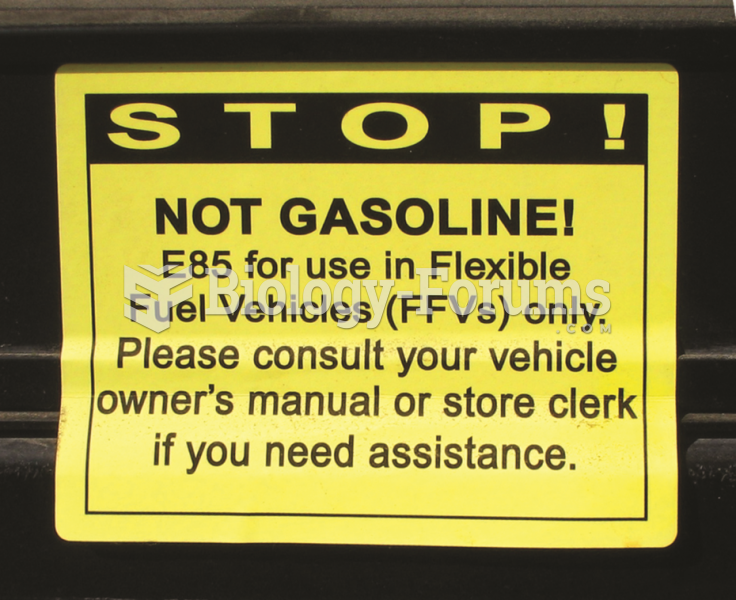|
|
|
Atropine was named after the Greek goddess Atropos, the oldest and ugliest of the three sisters known as the Fates, who controlled the destiny of men.
The first war in which wide-scale use of anesthetics occurred was the Civil War, and 80% of all wounds were in the extremities.
When intravenous medications are involved in adverse drug events, their harmful effects may occur more rapidly, and be more severe than errors with oral medications. This is due to the direct administration into the bloodstream.
The effects of organophosphate poisoning are referred to by using the abbreviations “SLUD” or “SLUDGE,” It stands for: salivation, lacrimation, urination, defecation, GI upset, and emesis.
Less than one of every three adults with high LDL cholesterol has the condition under control. Only 48.1% with the condition are being treated for it.
 A simulated-color map of the surface of Venus as measured by synthetic aperture radar on the Magella
A simulated-color map of the surface of Venus as measured by synthetic aperture radar on the Magella
 A fuel composition tester (SPX Kent-Moore J-44175) is the recommended tool, by General Motors, to ...
A fuel composition tester (SPX Kent-Moore J-44175) is the recommended tool, by General Motors, to ...
 An additional extension may be necessary to hoist a truck or van equipped with running boards to ...
An additional extension may be necessary to hoist a truck or van equipped with running boards to ...




